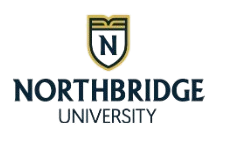
Financial aid (may be available)

$191 to start
$2,200 total

Financial aid (may be available)

Financial aid (may be available)
$1,090 total
$975 total
$550 total
No cost info
No cost info
$700 total
No cost info
$1,350 total
$399 total
$600 total
The healthcare industry is a rapidly growing field with a high demand for qualified professionals. One such profession that's increasingly popular is that of a Home Health Aide (HHA). This blog post will guide you through the process of becoming an HHA, exploring the training requirements, what to expect from classes, the certification process, job prospects, and more.

A Home Health Aide is a healthcare professional who provides care to individuals who need assistance with daily activities. This may include the elderly, chronically ill, or disabled people who need extra help at home. HHA's duties often include tasks like meal preparation, medication administration, bathing, dressing, and light housekeeping. They may also assist with arranging transportation to doctors' appointments or other necessary outings.
Training to become an HHA differs from state to state, but in general, it involves a short-term training program that covers a variety of healthcare topics. These include, but are not limited to:
Basic anatomy and physiology
Understanding and managing chronic illnesses
Personal care skills (bathing, dressing, grooming)
Nutrition and meal preparation for different dietary needs
Emergency response and first aid
Communication and interpersonal skills
In addition to classroom learning, most programs also include a practical component where students gain hands-on experience under the supervision of an experienced healthcare professional.
When selecting a Home Health Aide class, there are several factors to consider:
Accreditation: Ensure that the program is accredited by a recognized healthcare education body. This is important for quality assurance and may also be a requirement for certification.
Course Content: The course should cover all necessary topics to provide comprehensive training. Revisit the list of training requirements to make sure the course will adequately prepare you.
Practical Experience: A good program should have a significant practical component. This provides invaluable hands-on experience.
Instructor Qualifications: Look for programs with experienced, knowledgeable instructors. They should be professionals in the field who can provide real-world insight and guidance.
Student Support: The institution should provide support for students, such as career guidance and assistance with the certification process.
The day-to-day class experience typically involves a mix of classroom learning and practical training. Classroom sessions may include lectures, discussions, demonstrations, and assessments. Practical sessions will likely involve practicing skills in a controlled environment under the supervision of an instructor.
Upon completion of the HHA training program, students are usually required to pass a certification exam. This exam tests the knowledge and skills gained throughout the program. Once you pass the certification exam, you will be a certified Home Health Aide, a credential that can significantly enhance your employability.
After becoming a certified HHA, there are several ways to find related jobs. You can apply to home health agencies, long-term care facilities, or private homes that require home health services. Networking and reaching out to contacts in the healthcare field can also be beneficial. Furthermore, online job platforms can be a good resource for finding opportunities.
Once you are a certified HHA, you may wish to pursue further training in the healthcare field. This could include:
Technology plays a crucial role in healthcare education. Online learning platforms, virtual reality, and simulation tools can enhance understanding and skill development.
The COVID-19 pandemic has underscored the importance of healthcare professionals, including HHAs. It has also necessitated changes in training delivery, such as a shift to online learning and increased emphasis on infection control.
In addition to technical skills, HHAs must also possess a range of soft skills, such as empathy, patience, and strong communication abilities. These are essential for providing high-quality, patient-centered care.
The demand for HHAs is expected to grow in the coming years, driven by an aging population and a preference for home-based care. This makes it an attractive career choice for those interested in healthcare.
Becoming a Home Health Aide can be a rewarding career choice that offers the chance to make a real difference in people's lives. With the right training and certification, you'll be well-equipped to enter this essential field. Whether you're starting from scratch or looking to further your healthcare career, there are plenty of resources available to help you on your path.
Dreambound is your go-to for city-specific guides if you're starting in this field. And if you're in another location or considering a change, we've written several others as well.
Weighing the possibilities of a career shift ? Dreambound has written many extensive guides to guide you in making informed decisions. Check out some of these resources below:
Dreambound's platform allows prospective students to find the right educational program for them through searching, filtering, and connecting with our extensive selection of career & technical education partners.
Dreambound has over 70 programs across healthcare, technology, business, and industrial trades. This includes programs such as Medical Billing, Cybersecurity, and welding.
Some of our schools offer financial aid for those who qualify. Many others offer payment plans, where you can pay the cost of class over time.
Yes, Dreambound offers many online programs. On Dreambound's search, you can filter by online, in-person, and hybrid (part online, part in-person).
Dreambound is completely free for you to use! We are supported by schools and organizations who pay to advertise on our website, so we can offer all of our career resources for free.